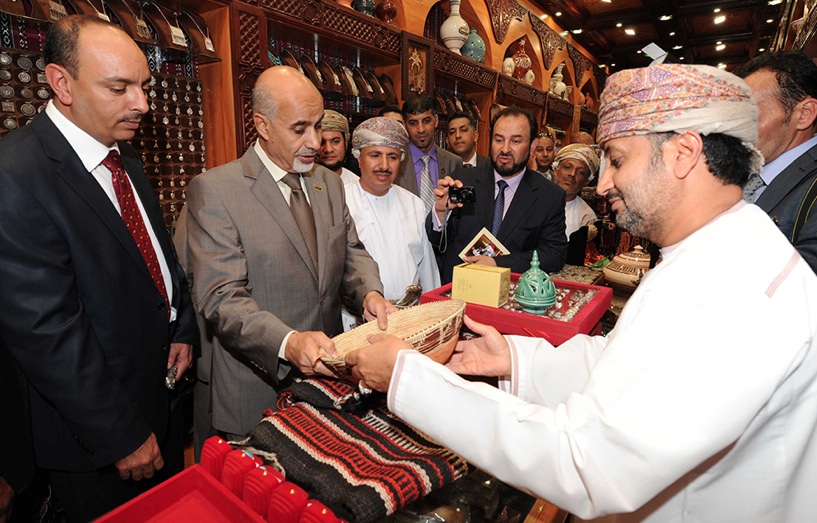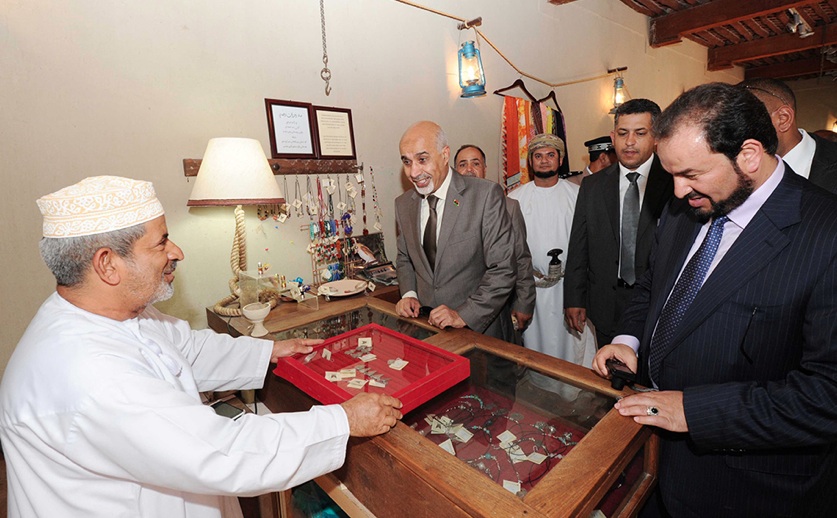By Hadi Fornaji.

Tripoli, 29 April 2013:
Congress President Mohamed Magarief and Foreign Minister Mohamed Abdualaziz held talks this evening at Hisn Al . . .[restrict]Shomoukh, some 500 kilometres north west of Muscat, with Sultan Qaboos Bin Said of Oman on developing relations between the two Arab states.
Magarief and Abdelaziz arrived in Oman on Saturday for a three-day visit, accompanied by the Minister of State for General National Congress Affairs, Muez Fathi al-Khoujah, as well as Congress members Nizar Ahmed Kawan, Suliman Younis Gajama, Asmaa Amara Mohamed Sariba, Othman Mabrouk Al-Ghedwi, Abdul Aali Anwar al-Murtada, Omar Khaled Al-Obeidi, Ibrahim Mohamed Abu Shaala and Ismail Abdul Hameed Yarbou, together wit a number of Libyan officials.
At a meeting on Monday, attended by a number of Omani ministers including those of oil, agriculurtre, social affairs, information and mapower, the sultanate’s Deputy Prime Minister, Sayyid Fahd bin Mahmoud al-Said, expressed Oman’s keenness to develop ties with Libya.
The presence in Oman of Qaddafi’s son Mohamed, daughter Aisha, her sons and husband, as well as other Qaddafi relatives as political refugee, having left Algeria, was raised in the talks.
Abdulaziz later said that Oman had promised that none of them would be allowed to interfere in Libyan politics.
“The Sultanate of Oman has accepted to treat them as political refugees and this is its right. What we are concerned about is that they carry out no political activities against the 17 February Revolution”, Abdulaziz was reported as saying.
The Libyan delegation then visited Oman’s Grand Mosque, the Royal Opera House and Oman’s Parliament building.
Earlier today, Magarief and his delegation had visited Oman’s historic Nizwa Castle and its traditional suq in the Governorate of A’Dakhiliyah, where they were given given a tour.

Libya and Oman have historic links. A number of Amazigh in the Jebel Nafusa are Ibadi Muslims, like the majority of Omanis, and it resulted in Amazigh-Omani marriages. The connection supposedly resulted in Qaddafi notoriously and ignorantly saying on one occasion that the Amazigh should “go back to Oman”.
After his 1969 coup, a number of Libyans found refuge in Oman. Conversely, during the 2011 revolution it was Oman that initially pushed within the six-memebr Gulf Cooperation Council for a No-Fly zone over Libya. This then became Arab League policy and, as a result of that, no members of the UN Security Council felt they could veto it when it came to voting on it.
[/restrict]








